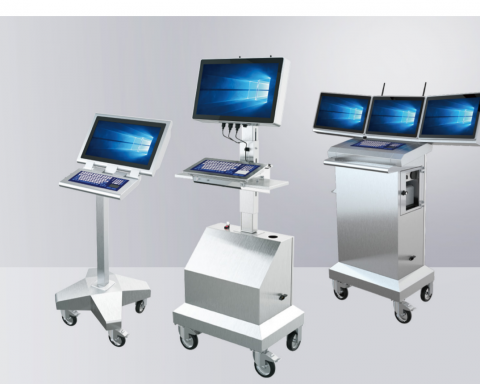In the face of increasing global health challenges, the development and production of vaccines have become paramount. One critical aspect is the ability to scale up manufacturing processes to meet the growing demand for viral vector-based vaccines. In this article, we will explore the efforts being made by innovative biotechnology companies to develop scalable and cost-effective manufacturing methods. By implementing advanced bioprocessing technologies and expanding production facilities, these companies are revolutionizing the landscape of vaccine production.
The Need for Scalable Manufacturing
Viral vector-based vaccines have emerged as powerful tools in combating infectious diseases. However, traditional manufacturing approaches often struggle to keep up with the rapid pace of vaccine development and global demand. Scalable manufacturing processes are crucial to address this challenge effectively. They enable the production of vaccines in large quantities within shorter timeframes while maintaining quality and cost-effectiveness.
Implementing Advanced Bioprocessing Technologies
To achieve scalable vaccine manufacturing, biotechnology companies are leveraging advanced bioprocessing technologies. These technologies optimize various stages of the production process, ensuring efficiency, reproducibility, and scalability. Here are some key advancements:
- Single-Use Bioreactors: Traditional stainless-steel bioreactors are being replaced by single-use bioreactors. These disposable, sterile containers offer several advantages, including increased flexibility, reduced contamination risks, and simplified operations. By eliminating the need for cleaning and validation between batches, single-use bioreactors significantly accelerate production timelines.
- Process Automation: Automation plays a vital role in scaling up vaccine manufacturing. Automated systems streamline workflow, improve precision, and reduce the potential for human error. From seed train expansion to downstream purification, automation enhances efficiency and consistency, enabling faster production without compromising quality.
- Continuous Manufacturing: Traditional batch processes are being replaced by continuous manufacturing approaches. Continuous bioprocessing involves running multiple stages of the production process simultaneously, minimizing downtime and increasing overall productivity. This innovative approach allows for a more efficient use of resources and a shorter time to produce vaccines at a large scale.
Expanding Production Facilities
In addition to implementing advanced bioprocessing technologies, expanding production facilities is critical to meeting the growing demand for viral vector based vaccines. Biotechnology companies are taking several steps to expand their manufacturing capacity:
- Facility Upgrades: Companies are investing in facility upgrades to optimize existing infrastructure and maximize production capabilities. This may involve the installation of state-of-the-art equipment, the reconfiguration of manufacturing spaces, and the implementation of lean manufacturing principles to streamline operations.
- Strategic Partnerships: Collaboration and strategic partnerships with contract development and manufacturing organizations (CDMOs) help bolster manufacturing capacity. By leveraging the specialized expertise and infrastructure of CDMOs, biotechnology companies can rapidly scale up production and meet market demands more efficiently.
- Global Manufacturing Networks: To ensure a robust supply chain, biotechnology companies are establishing manufacturing facilities in different regions worldwide. This global manufacturing network helps mitigate risks associated with supply chain disruptions, regulatory challenges, and global distribution. It also enables timely access to vaccines for diverse populations.
Addressing Cost-Effectiveness
In addition to scalability, cost-effectiveness is a crucial factor in vaccine manufacturing. Biotechnology companies are employing various strategies to optimize production costs:
- Process Efficiency: Improving process efficiency, yield, and productivity are key factors in reducing manufacturing costs. By optimizing upstream and downstream processes, companies can maximize the output of vaccines while minimizing the use of raw materials and resources.
- Economies of Scale: Scaling up production enables biotechnology companies to benefit from economies of scale. As production volume increases, unit costs tend to decrease, resulting in more cost-effective vaccine manufacturing.
- Continuous Process Improvement: Continuous process improvement methodologies, such as Six Sigma and Lean Manufacturing, are being applied to vaccine manufacturing. These methodologies help identify and eliminate waste, streamline operations, and improve overall efficiency, contributing to cost reduction.
Shortly, scalable and cost-effective manufacturing processes are essential for meeting the increasing global demand for viral vector-based vaccines. By implementing advanced bioprocessing technologies, expanding production facilities, and optimizing cost-effectiveness, biotechnology companies are revolutionizing vaccine production. These efforts pave the way for more efficient and timely delivery of life-saving vaccines to populations worldwide, ultimately contributing to better global health outcomes.








